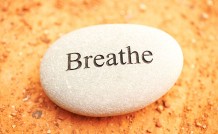Online Class: Anger Management 101

no certificate
with CEU Certificate*
-
10Lessons
-
20Exams &
Assignments -
7,146Students
have taken this course -
5Hours
average time -
0.5CEUs
Course Description
Everyone occasionally gets angry and anger is a natural reaction to the things that happen: to you, around you, to someone you care for. Anger is a normal emotion unless the result of your anger is such that your reaction becomes uncontrollable, violent, or destructive.
When anger becomes your reaction of choice to even the most minor of situations, or if you find yourself lashing out unnecessarily at people you love, respect, or care for, your anger may be spiraling out of control. Out of control anger can lead to many psychological and emotional issues, as well as many difficulties with your career, important relationships, and friendships.
This course will provide the information you will need to end the anger cycle and live up to your true potential. We will discuss these topics:
What are Various forms of Anger
What are the Responses to Anger
How to Control Anger
Developing Empathy
Passive Aggressive Behaviors
Stress Factors
Anger in Relationships
Professional Help Resources
Breathing and Relaxation Exercises
 Everyone occasionally gets angry, and anger is a reaction to the things that happen: to you, around you, or to someone you care for. Anger is a normal, natural emotion – unless the result of your anger is such that your reaction becomes uncontrollable, violent, or destructive.
Everyone occasionally gets angry, and anger is a reaction to the things that happen: to you, around you, or to someone you care for. Anger is a normal, natural emotion – unless the result of your anger is such that your reaction becomes uncontrollable, violent, or destructive. When anger becomes your reaction of choice to even the most minor of situations, or if you find yourself lashing out unnecessarily at people you love, respect, or care for, your anger may be spiraling out of control. Out-of-control anger can lead to many psychological and emotional issues, as well as many difficulties with your career, important relationships, and friendships.
What Is Anger?
Anger is an emotional state that occurs when unexpected things happen to you, or around you, that you don't like. The feelings you have can be as mild as annoyance, and as extreme as fury and rage.
Anger is a very subjective emotion. What makes one person angry may not bother another person at all. There are three basic types of anger that psychologists recognize as being different emotional states. The first is a defense mechanism that occurs when we feel threatened or trapped. The second form of anger exists as a reaction to the interpretation of events in which we believe that we are deliberately being harmed or being treated unfairly. The last type of anger is the irritable, sullen anger more closely associated to personality than to emotion.

Basically, anger is the emotional response you feel when your expectations are not met. It might be an unmet expectation that people will do the "right" thing (like return your wallet, money intact, when you lose it in a restaurant or at the mall); or that people will do things the "right" way (like when you asked your son to wash the car and he didn't rinse off the soap and you had to re-wash it yourself, but you didn't discover it right away so there was more work involved). It might be an expectation that you will have a good day, that traffic will flow smoothly – and then you get caught behind a 14-car pileup on the freeway. It may even be an expectation that you have of yourself -- expecting yourself to be able to do a certain specific task or perform a certain function, and then when you are unable to perform at the level you expected of yourself, you become angry.
Many times, people do not realize they are angry until it is too late -- when they are saying horrible things to someone whom they love, or behaving violently toward someone. Some people will not realize anger has done any damage until well after the reaction they have had, when they are dealing with the consequences of the action (like getting arrested for domestic violence, or brawling in a pub). Part of anger management is learning to recognize the feeling of anger before the reaction to anger happens.
What Causes Anger?
The emotion of anger can be set off by both internal and external triggers. Internal triggers may include reactions to things you may already be sensitive about, like being teased. External triggers are things beyond your control that don't happen in the way they should. Certain situations can make you angry – particularly when you feel like you have no control over circumstances (you show up for a doctor's appointment you've been waiting to go to for more than a month, and when you get there, the doctor has been called away to surgery).People can make you angry. Even memories can make you angry.
Anger is an instinctual emotion that can cause an aggressive urge. It is a completely normal response; it is an ancient part of our defense mechanism that allowed us to survive, adapt, and defend, making it a necessary survival instinct. Anger is a completely normal and natural feeling to have. However, inappropriate anger response is often the cause of altercations, run-ins with police, domestic violence issues, and other less favorable outcomes.
Sometimes, our behavior when we're angry becomes a comfortable habit – a feeling we are used to having. We recognize the feeling of anger, without even realizing we are angry, and react in a habitual, but unhealthy way without stopping to think about what it was that made us angry, or why. Part of anger management and taking an anger management course is to learn to stop that habit of reaction.
Summary
Anger is a normal, natural emotion, and without it we would be less able to defend ourselves when needed. However, our physical reaction to anger and the way we express anger can become a problem for some. Anger management helps people learn how to recognize and control their reactions to anger.
- Completely Online
- Self-Paced
- Printable Lessons
- Full HD Video

- 6 Months to Complete
- 24/7 Availability
- Start Anytime
- PC & Mac Compatible
- Android & iOS Friendly
- Accredited CEUs

Course Lessons
Lesson 1 - The Basics of Anger
 Lesson 1 Video
Lesson 1 Video Lesson discussions: Anger Management Course; Reasons for Taking this Course
Lesson discussions: Anger Management Course; Reasons for Taking this Course Complete: Lesson 1 Assignment
Complete: Lesson 1 Assignment Assessment: Lesson 1 - The Basics of Anger
Assessment: Lesson 1 - The Basics of Anger
Lesson 2 - Area Responses to Anger
 Lesson 2 Video
Lesson 2 Video Complete: Lesson 2 Assignment
Complete: Lesson 2 Assignment Assessment: Lesson 2 - Area Responses to Anger
Assessment: Lesson 2 - Area Responses to Anger
Lesson 3 - Identifying Anger
 Lesson 3 Video
Lesson 3 Video Complete: Lesson 3 Assignment
Complete: Lesson 3 Assignment Assessment: Lesson 3 - Identifying Anger
Assessment: Lesson 3 - Identifying Anger
Lesson 4 - Controlling Anger
 Lesson 4 Video
Lesson 4 Video Complete: Lesson 4 Assignment
Complete: Lesson 4 Assignment Assessment: Lesson 4 - Controlling Anger
Assessment: Lesson 4 - Controlling Anger
Lesson 5 - Developing Empathy
 Lesson 5 Video
Lesson 5 Video Complete: Lesson 5 Assignment
Complete: Lesson 5 Assignment Assessment: Lesson 5 - Developing Empathy
Assessment: Lesson 5 - Developing Empathy
Lesson 6 - Passive Aggressive Behavior
 Lesson 6 Video
Lesson 6 Video Complete: Lesson 6 Assignment
Complete: Lesson 6 Assignment Assessment: Lesson 6 - Passive Aggressive Behavior
Assessment: Lesson 6 - Passive Aggressive Behavior
Lesson 7 - Stress
 Lesson 7 Video
Lesson 7 Video Lesson discussions: Stress Level
Lesson discussions: Stress Level Complete: Lesson 7 Assignment
Complete: Lesson 7 Assignment Assessment: Lesson 7 - Stress
Assessment: Lesson 7 - Stress
Lesson 8 - Anger in Key Relationships
 Lesson 8 Video
Lesson 8 Video Complete: Lesson 8 Assignment
Complete: Lesson 8 Assignment Assessment: Lesson 8 - Anger in Key Relationships
Assessment: Lesson 8 - Anger in Key Relationships
Lesson 9 - Professional Help
 Lesson 9 Video
Lesson 9 Video Complete: Lesson 9 Assignment
Complete: Lesson 9 Assignment Assessment: Lesson 9 - Professional Help
Assessment: Lesson 9 - Professional Help
Lesson 10 - Breathing and Relaxation Exercises
 Lesson 10 Video
Lesson 10 Video Lesson discussions: Anger and Stress Management; Course Comments; Program Evaluation Follow-up Survey (End of Course)
Lesson discussions: Anger and Stress Management; Course Comments; Program Evaluation Follow-up Survey (End of Course) Complete: Lesson 10 Assignment
Complete: Lesson 10 Assignment Assessment: Lesson 10 - Breathing and Relaxation Exercises
Assessment: Lesson 10 - Breathing and Relaxation Exercises
Learning Outcomes
- Identify what anger is.
- Recognize area responses to anger.
- Perform variety of methods to control anger.
- Develop empathy.
- Recognize different forms of passive aggressive behavior.
- Identify stress factors that cause anger.
- Recognize the use of anger in key relationships.
- Identify when to seek professional help.
- Utilize breathing and relaxation exercises to better control anger and outbursts.
- Demonstrate mastery of lesson content at levels of 70% or higher.
Additional Course Information

- Document Your Lifelong Learning Achievements
- Earn an Official Certificate Documenting Course Hours and CEUs
- Verify Your Certificate with a Unique Serial Number Online
- View and Share Your Certificate Online or Download/Print as PDF
- Display Your Certificate on Your Resume and Promote Your Achievements Using Social Media

Choose Your Subscription Plan
No Certificate / No CEUs
This course only
| Includes certificate | X |
| Includes CEUs | X |
| Self-paced |

|
| Instructor support |

|
| Time to complete | 6 months |
| No. of courses | 1 course |
Certificate & CEUs
This course only
| Includes certificate |

|
| Includes CEUs |

|
| Self-paced |

|
| Instructor support |

|
| Time to complete | 6 months |
| No. of courses | 1 course |
Certificates & CEUs
Includes all 600+ courses
| Includes certificate |

|
| Includes CEUs |

|
| Self-paced |

|
| Instructor support |

|
| Time to complete | 12 Months |
| No. of courses | 600+ |
Certificates & CEUs
Includes all 600+ courses
| Includes certificate |

|
| Includes CEUs |

|
| Self-paced |

|
| Instructor support |

|
| Time to complete | 24 Months |
| No. of courses | 600+ |
Student Testimonials
- "I really enjoyed this course. I thought it was very informative about what anger management is and how to reduce your anger and stress. It helped me become more self-aware of my expectations and the journal exercises were further helpful to be able to communicate some of my issues." -- Erin J.
- "I am very thankful for the opportunity to take this course and feel that it was very helpful in teaching ways to recognize and deal with my anger in the future." -- Tony M.
- "I think this course is great. Every lesson is laid out in a way that is easy to navigate. Very informative." -- Erin G.
- "I think this course was amazing and I think the breathing steps and how to take care of stress was very helpful." -- Kiara W.
- "This course was very helpful. I now have the tools I need to address my anger in a healthier way. Complete eye opener! Thank you!" -- Tracy H.
- "I enjoyed the course very much , I did find it challenging at times, as it's the very first self help course that I've ever done...I'm very happy with the outcome and how I feel. I believe the course has helped and improved my anger issues and state of mind. Thank you." -- John L.
- "The course was great I learned so many things that I did not knew before and I also learned about myself, what caused me to be angry and what steps should I take to control it. I think I am more equipped with the tools I needed to control and handle my anger through this course,tkank you." -- Harsimran P.
- "The course, for me, was reflective, offering new insights to control of anger issues. I thought, overall, the course met its desired outcomes." -- George P.
- "Yes this is a very well explained course and every thing is explained in good detail and easy to understand with good examples. It was really very helpful in giving me a insight about my own anger and helped to understand myself better I can definitely enjoy the benefits of this course. Thank you very much." -- Steven P.
- "Very good as it allows me to understand about passive-aggressive behavior which relates to what happen in my life and how I've responded in fits of anger. Thank you with appreciation." -- Cindy juliana R.
Related Courses
-
 54 hours
5.4 CEUs
Become a Life Coach - Course Bundle
$145.00
54 hours
5.4 CEUs
Become a Life Coach - Course Bundle
$145.00
-
 29 hours
2.9 CEUs
Human Resources Productivity Course Bundle
$120.00
29 hours
2.9 CEUs
Human Resources Productivity Course Bundle
$120.00
-
 6 hours
0.6 CEUs
Confidence Building
$95.00
6 hours
0.6 CEUs
Confidence Building
$95.00
-
 15 hours
1.5 CEUs
Life Coaching 101
$95.00
15 hours
1.5 CEUs
Life Coaching 101
$95.00
-
 6 hours
0.6 CEUs
Workplace Drug Use - An HR Guide
$95.00
6 hours
0.6 CEUs
Workplace Drug Use - An HR Guide
$95.00
-
 5 hours
0.5 CEUs
Recruitment and Retention Strategies
$95.00
5 hours
0.5 CEUs
Recruitment and Retention Strategies
$95.00
-
 5 hours
0.5 CEUs
Workers' Compensation 101
$95.00
5 hours
0.5 CEUs
Workers' Compensation 101
$95.00
-
 5 hours
0.5 CEUs
Building Self-Esteem in Children
$95.00
5 hours
0.5 CEUs
Building Self-Esteem in Children
$95.00
-
 6 hours
0.6 CEUs
Goal Setting for Business
$95.00
6 hours
0.6 CEUs
Goal Setting for Business
$95.00
-
 6 hours
0.6 CEUs
Job Performance Appraisals - A How To Guide
$95.00
6 hours
0.6 CEUs
Job Performance Appraisals - A How To Guide
$95.00
-
 10 hours
1.0 CEUs
Understanding Addictions
$95.00
10 hours
1.0 CEUs
Understanding Addictions
$95.00
-
 3 hours
0.3 CEUs
Problem Solving Strategies
$95.00
3 hours
0.3 CEUs
Problem Solving Strategies
$95.00
-
 6 hours
0.6 CEUs
Delegation Skills
$95.00
6 hours
0.6 CEUs
Delegation Skills
$95.00
-
 11 hours
1.1 CEUs
Wellness Coaching
$95.00
11 hours
1.1 CEUs
Wellness Coaching
$95.00
-
 5 hours
0.5 CEUs
Child Safety for Parents
$95.00
5 hours
0.5 CEUs
Child Safety for Parents
$95.00
-
 8 hours
0.8 CEUs
Creating a Positive Work Environment
$95.00
8 hours
0.8 CEUs
Creating a Positive Work Environment
$95.00
-
 5 hours
0.5 CEUs
Critical Thinking
$95.00
5 hours
0.5 CEUs
Critical Thinking
$95.00
-
 5 hours
0.5 CEUs
Goal Setting 101
$95.00
5 hours
0.5 CEUs
Goal Setting 101
$95.00
-
 6 hours
0.6 CEUs
Abnormal Psychology 101
$95.00
6 hours
0.6 CEUs
Abnormal Psychology 101
$95.00
-
 7 hours
0.7 CEUs
Preventing Workplace Harassment
$95.00
7 hours
0.7 CEUs
Preventing Workplace Harassment
$95.00
-
 8 hours
0.8 CEUs
Decision Making Skills
$95.00
8 hours
0.8 CEUs
Decision Making Skills
$95.00
-
 5 hours
0.5 CEUs
Workplace Safety
$95.00
5 hours
0.5 CEUs
Workplace Safety
$95.00
-
 7 hours
0.7 CEUs
Respectful International Workplace
$95.00
7 hours
0.7 CEUs
Respectful International Workplace
$95.00
-
 14 hours
1.4 CEUs
Career Coaching
$95.00
14 hours
1.4 CEUs
Career Coaching
$95.00
-
 7 hours
0.7 CEUs
Attention Deficit Disorders: ADD and ADHD
$95.00
7 hours
0.7 CEUs
Attention Deficit Disorders: ADD and ADHD
$95.00
-
 5 hours
0.5 CEUs
Developing Great Social Skills
$95.00
5 hours
0.5 CEUs
Developing Great Social Skills
$95.00
-
 5 hours
0.5 CEUs
Emotional Intelligence
$95.00
5 hours
0.5 CEUs
Emotional Intelligence
$95.00
-
 7 hours
0.7 CEUs
Drug and Alcohol Abuse 101
$95.00
7 hours
0.7 CEUs
Drug and Alcohol Abuse 101
$95.00
-
 6 hours
0.6 CEUs
Workplace Violence: A Guide to Responding and Preventing
$95.00
6 hours
0.6 CEUs
Workplace Violence: A Guide to Responding and Preventing
$95.00
-
 5 hours
0.5 CEUs
The Art of Breathing
$95.00
5 hours
0.5 CEUs
The Art of Breathing
$95.00
-
 7 hours
0.7 CEUs
Personality Development
$95.00
7 hours
0.7 CEUs
Personality Development
$95.00
-
 10 hours
1.0 CEUs
Learning Disabilities: What You Need to Know
$95.00
10 hours
1.0 CEUs
Learning Disabilities: What You Need to Know
$95.00
-
 3 hours
0.3 CEUs
Building Self Esteem
$95.00
3 hours
0.3 CEUs
Building Self Esteem
$95.00
-
 8 hours
0.8 CEUs
Motivational and Public Speaking 101
$95.00
8 hours
0.8 CEUs
Motivational and Public Speaking 101
$95.00
-
 8 hours
0.8 CEUs
Strategic Planning
$95.00
8 hours
0.8 CEUs
Strategic Planning
$95.00
-
 7 hours
0.7 CEUs
Collaboration Skills
$95.00
7 hours
0.7 CEUs
Collaboration Skills
$95.00
-
 4 hours
0.4 CEUs
Resolving Workplace Conflict
$95.00
4 hours
0.4 CEUs
Resolving Workplace Conflict
$95.00
-
 8 hours
0.8 CEUs
Human Resources Management 101
$95.00
8 hours
0.8 CEUs
Human Resources Management 101
$95.00









